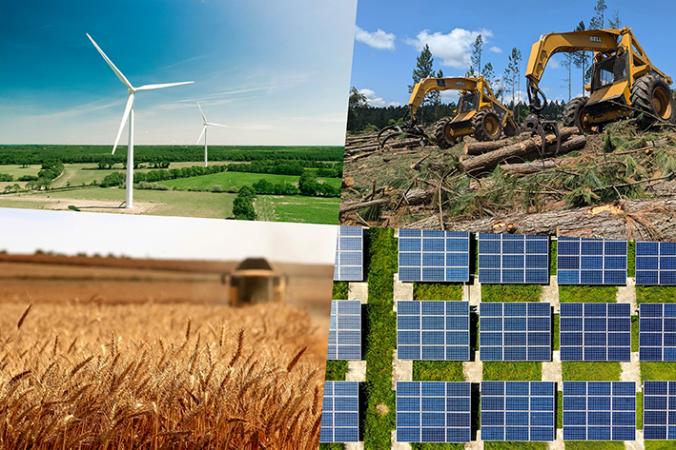CO₂-Emitting Materials Can Be Turned Into Sustainable Plastics
Fortum presented a new material at the Greener Manufacturing Conference & Expo in Cologne, November.
Fortum's goal is to have the first INGA plastic products on the market within this decade.
"In October 2024, we announced that we have successfully produced the first sample of INGA—the world's first biodegradable plastic made entirely from CO₂. This breakthrough was a significant milestone, and we are now looking for partners on our journey towards the commercialisation of INGA," says Tony Rehn, Head of the INGA Development Team at Fortum Recycling & Waste.
"INGA" means 'nothing' or 'absolutely nothing' in Swedish. The name refers to the fact that nothing new has to be used in the production of plastics. "INGA products are aimed at environmentally conscious pioneers who want to make a difference but don't want to compromise on the quality or aesthetics of the products they use," explains Rehn.
INGA is a PHA (polyhydroxyalkanoate) material, which means it is biodegradable. The mechanical properties of PHA can be modified in many ways, making it a versatile material.
INGA meets the needs and requirements of a wide range of applications. The inherent rigidity and durability of the plastic make it suitable for packaging electronic equipment, toys, and cosmetics. Its excellent sealing properties, such as low water and oxygen permeability and high grease resistance, make it a suitable solution for food packaging.
The combination of PHA polymers with additives and fillers enables the creation of a polyester plastic that is:
- Hydrophobic, which means it is water-resistant and does not dissolve in water.
- Thermoplastic, which means it can be melted and reshaped, making it recyclable.
- Biodegradable in all tested environments: marine, freshwater, soil, home composting, landfill, anaerobic digestion, and industrial composting.
- Malleable and suitable for various treatment methods, such as extrusion, injection moulding, and dispersion coating.
Global demand for plastics is expected to triple by 2050, but recycling of plastics is increasing at an unfortunately slow pace: according to both the European Environment Agency and the United Nations, only 9% of annual plastic waste will be recycled globally in 2023. Moreover, some plastics cannot be mechanically recycled into new materials. The production of bio-based plastics is limited by the availability of raw materials such as wood, sugar beet, sugarcane, and vegetable oils.
"We believe that INGA will lay the foundation for a whole new category of responsible plastics, although mechanical recycling of plastics and bio-based solutions are still needed," Rehn clarified.





![EMR_AMS-Asset-Monitor-banner_300x600_MW[62]OCT EMR_AMS-Asset-Monitor-banner_300x600_MW[62]OCT](/var/ezwebin_site/storage/images/media/images/emr_ams-asset-monitor-banner_300x600_mw-62-oct/79406-1-eng-GB/EMR_AMS-Asset-Monitor-banner_300x600_MW-62-OCT.png)



